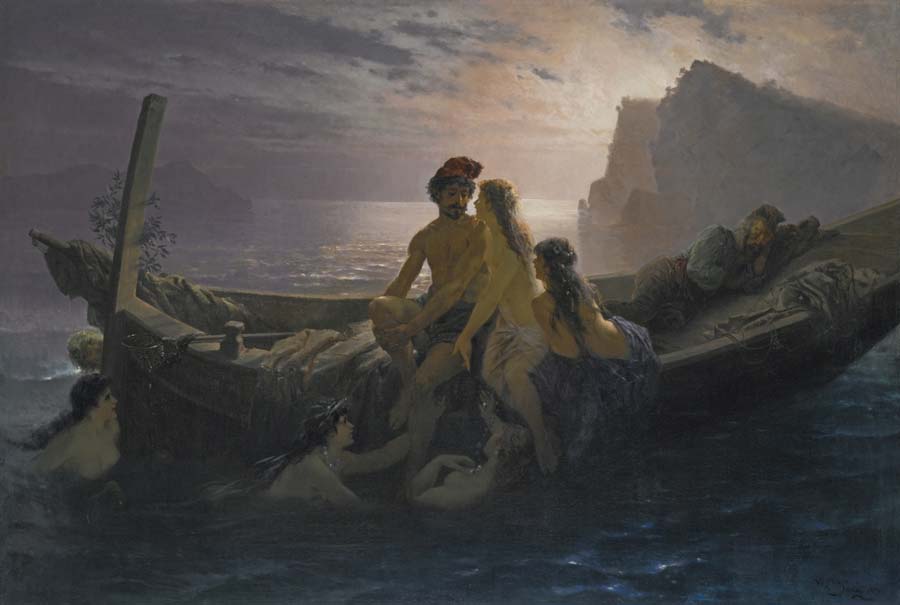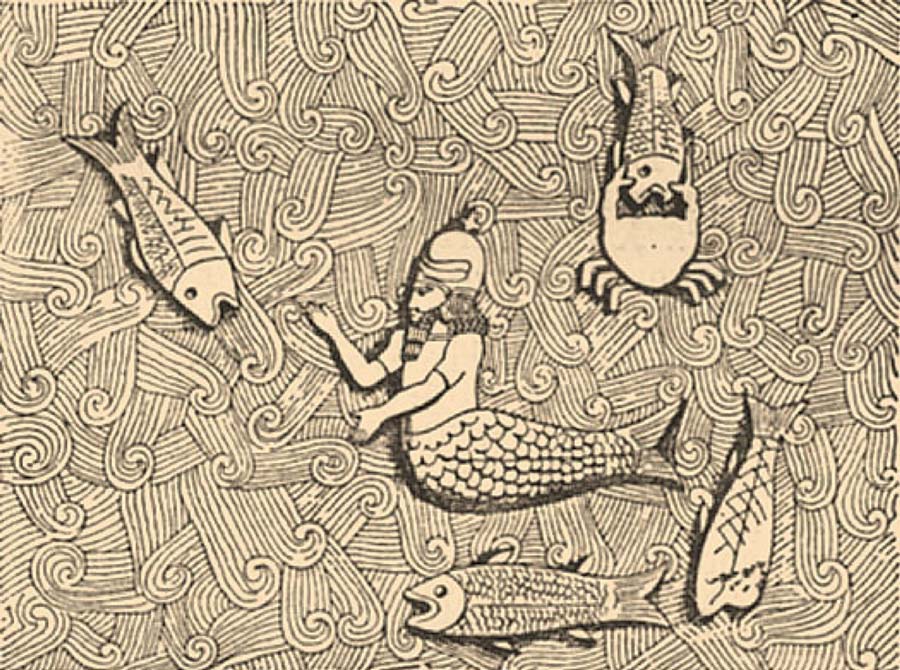
Identity Crises of the Sirens: Wise Women, Murderesses or Singing Prostitutes?
Ancient cultures around the world saw the sea as a dangerous place, filled with beings who preyed upon people - especially men. The Roman naturalist Pliny the Elder, whose Natural History would serve as scientific gospel for centuries to follow, wrote that the nereids were sea nymphs, recognizable as half-human and half-fish. The legatus of Gaul once wrote to Emperor Augustus claiming that he found a considerable number of nereids dead upon the sea-shore. He further added that: “I have, too, some distinguished informants of equestrian rank, who state that they themselves once saw, in the Ocean of Gades, a sea-man, which bore in every part of his body, a perfect resemblance to a human being, and that during the night he would climb up into ships; upon which the side of the vessel, where he seated himself, would instantly sink downward, and, if he remained there any considerable time, even go under water.”

The Sirens by Wilhelm Kray (1828-1889) (Public Domain)
Such maliciousness of the sea-creatures is echoed in the sirens of Greek mythology, who are known for seducing sailors with their sweet voices and lure them to their deaths. Surprisingly, Pliny who was quite ready to believe in the existence of nereids and sea-men, discounted sirens as pure fable. However, he still stated that: "although Dinon, the father of Clearchus, a celebrated writer, asserts that they exist in India, and that they charm men by their song, and, having first lulled them to sleep, tear them to pieces."
Early Records and Depictions of Wise Beings at Sea
There were plenty of fish-bodied beings in the ancient world. Among them is the Mesopotamian god Dagon, a fish-bodied goddess from Israel who was thought to be the Syrian deity Derketo or Atargatis, a mythical teacher of wisdom in 3rd century BC Babylon, Oannes. Stones from as far back as 6500 to 5500 BC representing fish goddesses with breasts, vulvae and bird-claws have been found at Lepenski Vir in Serbia. The sides of the 2nd century statue of the goddess Artemis Ephesia at Caesarea in Israel are covered in mermaids holding their tails.

Oannes. Brockhaus and Efron Jewish Encyclopedia (1906—1913) (Public Domain)
Berosus, the Chaldean historian, gives us an account of Oannes, who is identified with the fish-headed god often represented on the sculptures from Nimroud. Berosus says: “In the beginning there were in Babylon a great number of men of various races, who had colonized Chaldea. They lived without laws, after the manner of animals. But in the first year there appeared coming out of the Erythrian Sea (Persian Gulf) on the coast where it borders Babylonia, an animal endowed with reason, named Oannes. He had all the body of a fish, but below the head of the fish another head, which was that of a man; also, the feet of a man, which came out of its fish’s tail. He had a human voice, and its image is preserved to this day. This animal passed the day time among men, taking no nourishment. It taught them the use of letters, of sciences, and of arts of every kind; the rules for the foundation of towns, and the building of temples, the principles of laws, and geometry, the sowing of seeds, and the harvest; in one word, it gave to men all that conduced to the enjoyment of life. Since that time nothing excellent has been invented. At the time of sunset, this monster Oannes threw itself into the sea, and passed the night beneath the waves, for it was amphibious. He wrote a book upon the beginning of all things, and of Civilization, which he left to mankind.”
Another wise sea deity was the ancient Syrian goddess Atargatis, who also watched over the fertility of her people as well as their general well-being. She was human above the waist and fish below it, and was accordingly associated with water. The Syrians bestowed Atargatis with the biggest temple they could build, which came complete with a pond of sacred fish.





